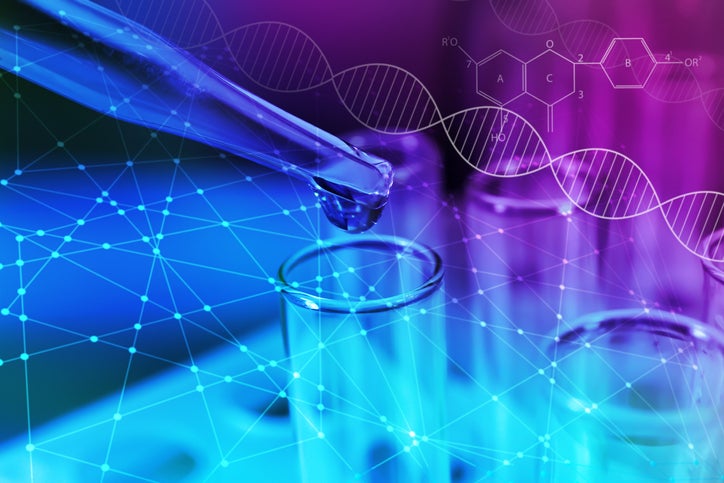-
New Research about Infertility is Promising
One in eight couples has trouble conceiving. Do you know how many of the cases are caused by unexplained male infertility? Nearly a quarter. For years, scientists have known that infertility can be linked to sperm that fail to throw out histones from DNA during development, but the reasons for this failure and how it happens is unclear. Now, however, that lack of clarity may be changing.

Promising new research out of Penn Medicine is showing the precise location of the retained histones and the key gene that regulates them. Researchers have also created a mouse model with a mutated version of the gene. This allows investigators to track the defects in sperm, starting with the early stages of sperm development and going through fertilization. This research could lead us to a better understanding of infertility in men, and how epigenetic mutations are passed to future generations.
What does it mean, when sperm fail to evict histones? Histones are the main proteins in chromatin. Their function is to package DNA and turn genes on and off. Healthy sperm lose about 90-95 percent of these proteins, replacing them with protamines, smaller proteins able to pack DNA into tiny sperm. When a man has unexplained infertility, the problem is often with retained histones. The sperm count can be normal, the sperm have normal motility, and yet because the histones are in the wrong location, the couple has trouble conceiving.
Until now, research has produced conflicting results about where these histones are located. Because of the confusion of discrepant data, the burden of assisted-reproductive technologies has continued to fall on women. Even if the male has the issue, the female partner goes through hormone injections and procedures to promote a higher fertility rate.
Imagine, then, if scientists were able to use epigenetic therapies to change the levels of histones and protamines in men. With this new research, scientists are better able to closely study the mechanisms behind a mutated sperm’s trajectory, which opens the door to potential therapeutic treatments. Epigenetic drugs are already being used to treat cancer and other diseases. With a clearer understanding of how a man’s epigenome affects conception and embryonic development, we have the potential to alter sperm, so these new studies may lead to a breakthrough infertility treatment.
If you’re struggling with infertility or considering a vasectomy reversal, the Center for Vasectomy Reversal is here to help. Under the direction of Dr. Joshua Green, our team provides state-of-the-art treatment for men who need a reversal of their vasectomy or have other concerns about their fertility. We accept major credit cards as well as cash and checks, and offer a payment plan for those who are unable to pay the entire fee at the time of surgery. Whether you’re ready to schedule a procedure or just want to learn more, you can contact us through our website, or call 941-894-6428 to arrange a free consultation.
-
Spotlight on Sperm Function Testing

Couples who are experiencing male infertility may have sperm function testing done, particularly if the male partner had a vasectomy reversal surgery. Sperm function testing is similar to semen analysis, but they aren’t quite the same test. A sperm function test will help the male infertility specialist develop a customized treatment plan that can help the couple achieve pregnancy.
First, the man must provide a sample of semen, which is examined in a laboratory. The lab technician will examine many aspects of the medical sample, including the total semen volume and the sperm density. The sperm density refers to the number of sperm present in the semen. A typical density is greater than 20 million sperm for each milliliter of semen. The lab technician will also examine the sperm motility (how well it moves), sperm morphology (shape of the sperm), and the presence of white blood cells. High amounts of white blood cells may indicate that an infection or inflammation could be affecting the sperm.
Dr. Joshua Green has helped countless couples overcome male infertility caused by vasectomies. Call the Center for Vasectomy Reversal in Sarasota at (941) 894-6428 to discuss your options, which may include sperm aspiration.
-
What Is Sperm Washing? (And Other Common Questions About Sperm)

On average, one milliliter of semen contains 15 million to more than 200 million sperm. It only takes one sperm to fertilize an egg, but the journey it must take to reach that egg can be incredibly challenging. An egg released by a follicle will only stay in the fallopian tube for about 24 hours. If sperm can’t reach the egg and fertilize it, pregnancy won’t happen that month. When male infertility is a factor, then it’s even more difficult for a couple to get pregnant naturally, which is why so many turn to in vitro fertilization (IVF). Sperm washing is one part of that process.
What is sperm washing?
Sperm washing is the processing that semen goes through before it can be used in an assisted reproduction procedure, like IVF or intrauterine insemination (IUI). The washing technique separates sperm from semen, and also eliminates dead or otherwise unviable sperm from the usable sample. Additionally, prostaglandins are removed from the sperm. These are naturally occurring chemicals that can interfere with fertility.
I know women must give up alcohol before pregnancy, but what about men?
Alcohol consumption affects male fertility as well as female fertility. Men who consume alcohol regularly or to excess are at a higher risk of reduced sperm quality and quantity. Fortunately, the effects are quickly reversed once you abstain from alcohol.
Does my body weight affect my sperm?
Yes. Men who are either underweight or overweight have a higher risk of male infertility. Overweight and obesity can affect the production of sperm, causing a low sperm count. Your body weight can also affect the quality of sperm.
What about body temperature?
Excessive heat can significantly affect your sperm count. If you’re trying to become a father, you should avoid hot tubs and saunas. Avoid placing sources of heat near your scrotal region. These include laptops and heating pads.
When you become a patient at the Center for Vasectomy Reversal , you’ll have the option to have sperm aspirated for use in an IVF cycle. Dr. Green will explain all of your options during your consultation. Call our vasectomy reversal clinic in Sarasota at (941) 894-6428.
-
A Look at Smoking and Sperm Quality

Smoking is never safe for anyone. During pregnancy, it’s particularly harmful because it compromises the health of the unborn baby. And regardless of whether the male or female partner smokes, the toxic substances suppress fertility. Smoking can cause male infertility because it damages the sperm. Researchers have found that men who smoke have lower sperm counts and abnormal sperm morphology. Morphology refers to the shape of the sperm. Smoking also affects sperm motility, which is the ability of the sperm to travel to an egg.
That’s not all smoking does to male fertility. It damages the DNA of sperm, which interferes with the fertilization of an egg, the implantation of an embryo, and the embryo’s development. Smoking increases the risk of miscarriage and reduces the chances of a successful IVF cycle. In addition to causing male infertility, secondhand smoke compromises the health and suppresses the fertility of the female partner.
When you’re ready to conquer infertility, Dr. Joshua Green in Sarasota can help. Call the Center for Vasectomy Reversal at (941) 894-6428.
Recent Posts
Popular Posts
categories
- Uncategorized
- Sperm Retrieval
- vasectomy reversal
- Emergency
- Dr. Green
- sperm count
- fertility
- male infertility
- MESA
- medical care
- low sperm count
- IVF
- male fertility testing
- anesthesia
- pregnancy
- sperm aspiration
- semen analysis
- post-vasectomy pain syndrome
- infertility
- VE
- anti-sperm antibodies
- older dad
- general anesthesia
- gender reveal party
- post-operative infections
- baby name
- parent
- baby's first year
- fertilization process
- spinal anesthesia
- ACS Fellow
- nutrition tips
- concierge-level care
- fertility planning app
- azoospermia
- out-of-town patients
- V-V
- post-vasectomy reversal
- conceiving
- vasectomy
- vasoepididymostomy
- smoking
- sperm quality
- baby registry
- infographic
- surgical care
- surgical consultation process
- prostate cancer
- baby gender
- family time
- COVID
- Baby Shower
- Child Care
- Halloween Costume Ideas for Babies
- Halloween
- Halloween Safety Tips
- Celebrity Infertility Spotlight
- Postpartum
- testosterone
- Father's Day
- Father
- Men's Health
- Thanksgiving
- Pregnancy Announcement
- Parenting Tips
- Sperm
